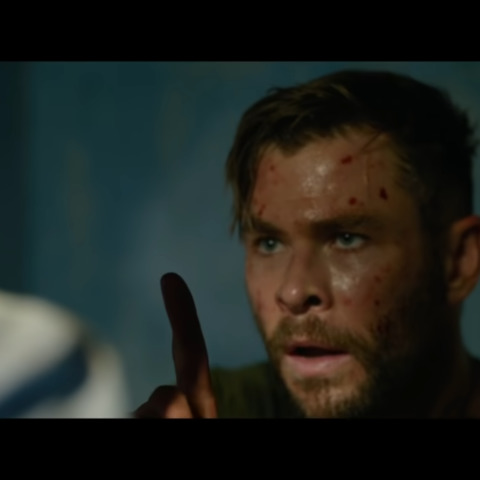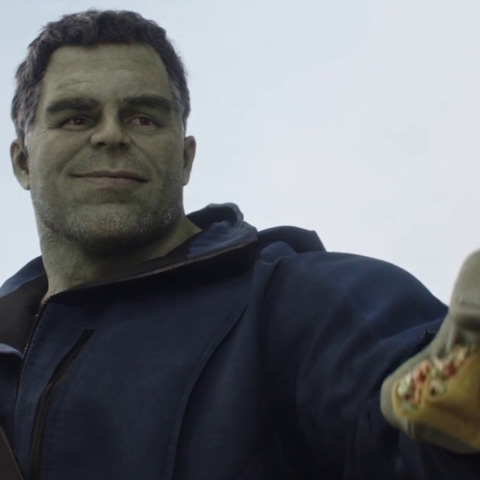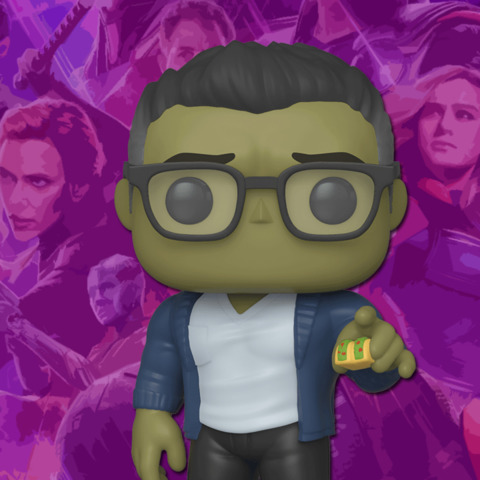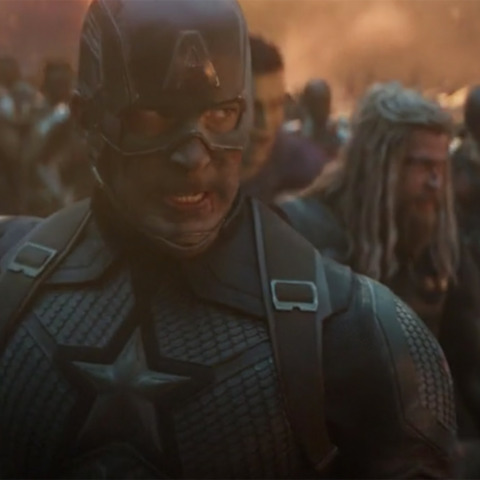The second trailer for Endgame has been released, and like the first one, it continues to lean heavily on teasing Tony Stark's perilous situation at the start of the movie. However, this one shows that Stark will seemingly make it to Earth to team up with the Avengers and don a snazzy new outfit (which some think could be related to the Quantum Realm). That is, of course, unless Marvel is trying to throw us off with fake or modified footage. We've got an Endgame trailer breakdown for you to dig into, but read on for our thoughts on why Tony should be on his way out. If you want even wilder ideas, we've got plenty of theories for where things could go.
Avengers: Endgame, which releases in April, promises the culmination of a story arc that has lasted more than a decade. The ambitious Marvel Cinematic Universe has borrowed liberally from the criss-crossing continuity that comic fans have known for years, and evolved into a sprawling movie empire. And because it has become so larger-than-life, it’s easy to forget that it began with a single hero. Tony Stark was our unlikely introduction to this universe. Now it’s time for his character to exit, and in the process, to finish one of the longest continuous character arcs in filmmaking history. By the time the credits roll on Endgame, Tony Stark should be deceased.
The MCU has introduced or reintroduced dozens of heroes to the big screen, but none has had a single coherent character trajectory quite like Tony Stark. Captain America has become disillusioned and questioned what his patriotic symbolism means, and Thor has gone through a variety of relationship ups-and-downs with his brother Loki, but Stark has had the most room to subtly grow. Part of that is his sheer screen-time. Due to a combination of his appearances in his own trilogy of Iron Man films, all of the Avengers films, and even cameos in others like Spider-Man: Homecoming, actor Robert Downey Jr. and the MCU writers have had the space to develop Stark to an incredible degree.
In addition, he’s one of the few Marvel heroes who is utterly mortal, making his character that much more identifiable. Other regular humans like Black Widow or Hawkeye just haven’t taken center-stage like Stark. All this builds a relatable human story of a man--a particularly gifted one intellectually, but just a man nonetheless--responding to and coping with the existence of profound knowledge and unfathomable stress.
In the original Iron Man, Tony Stark was a selfish, smug jackass. It took a near-death experience and seeing the consequences of his irresponsible lifestyle firsthand to force him to confront his own complacency. This was the crucial first step to his growth as a person, although he only extended his heroism to correcting his own mistakes and interdicting the misuse of Stark weapons against innocent people. He hadn’t yet learned how to look outside himself or work with others in any meaningful capacity.
This was partially corrected in Iron Man 2, which, although it was the sloppiest of all the movies in characterization, did knock Tony down a peg and allow him to see the value in having support from others. In this sequel, he started to act self-destructively, and only survived thanks to help from his friends Rhodey and Pepper, and to a larger extent, Black Widow and Nick Fury.
By the time The Avengers arrived, Tony Stark was still cocky, but he’d accepted some amount of a mantle of leadership and an appreciation for teamwork. At this point, it’s precisely because of this increased sense of responsibility that he clashes with Captain America. Cap’s criticism after Agent Coulson’s apparent death is harsh, but correct: Tony Stark isn’t a soldier, and deep-down he simply doesn’t believe that sacrifices are necessary.
Fallout 4 Next Gen Update Comparison Stellar Blade - 13 Things I Wish I Knew S.T.A.L.K.E.R. 2: Heart of Chornobyl — Official "Not a Paradise" Trailer Sea of Thieves Season 12: Official Content Update Video Manor Lords - Official Medieval City Builder/RTS Launch Trailer Devil May Cry: Peak Of Combat | Dante: Blazing Tempest Gameplay Trailer ALIEN: Rogue Incursion - Announcement Teaser Trailer Honkai: Star Rail - "Then Wake to Weep" | Version 2.2 Trailer SAND LAND — Official Launch Trailer Stellar Blade - Hard Mode No Damage Gigas Boss Gameplay Stellar Blade - Hard Mode No Damage Abaddon Boss Gameplay Stellar Blade - (Almost) All Outfits
Please enter your date of birth to view this video
By clicking 'enter', you agree to GameSpot's
Terms of Use and Privacy Policy
This is fundamental to understanding Tony Stark, and his relationship with Cap puts it into sharp relief. As we know from Captain America: The First Avenger, Steve Rogers was the type of man to jump on a grenade just to protect those in his company--most of whom thought he was a worthless wimp. Tony Stark didn’t have that trait. His clash with Cap is about a disagreement that comes up over and over throughout the series. Stark always believes that he can engineer a clever solution, a backdoor, a failsafe. His origin story is grounded in outwitting a problem to keep himself safe, and that continued to define his approach. That’s why, when he made the impulsive decision to fly into space at the end of The Avengers, it was a moment of real growth. But it also devastated him, and led to a series of decisions driven by trauma.
When Iron Man 3 began, he was wracked with Post-Traumatic Stress Disorder. He had seen the expanse of the universe and grappled with the magnitude of its threats. A man utterly confident in his ability to deal with anything the world threw at him suddenly had to cope with the idea that there are other worlds, and he felt a responsibility to be the guardian of his own.
It was this realization that led him to build the Iron Legion, an army of his own equipped to take on any conceivable specialized task. This reckless sense of unilateral responsibility also led him to build Ultron, dubbed “a suit of armor around the world.” This is when he conspicuously pointed out that cosmic threats were “the end-game” that all of his machinations revolved around. And most crucially, the vision shown to him by Scarlet Witch was one of mass death of all his allies and friends. The worst part, he confided in Nick Fury, was that he didn’t die with them. This was a major shift in his perspective and values.
Fallout 4 Next Gen Update Comparison Stellar Blade - 13 Things I Wish I Knew S.T.A.L.K.E.R. 2: Heart of Chornobyl — Official "Not a Paradise" Trailer Sea of Thieves Season 12: Official Content Update Video Manor Lords - Official Medieval City Builder/RTS Launch Trailer Devil May Cry: Peak Of Combat | Dante: Blazing Tempest Gameplay Trailer ALIEN: Rogue Incursion - Announcement Teaser Trailer Honkai: Star Rail - "Then Wake to Weep" | Version 2.2 Trailer SAND LAND — Official Launch Trailer Stellar Blade - Hard Mode No Damage Gigas Boss Gameplay Stellar Blade - Hard Mode No Damage Abaddon Boss Gameplay Stellar Blade - (Almost) All Outfits
Please enter your date of birth to view this video
By clicking 'enter', you agree to GameSpot's
Terms of Use and Privacy Policy
As the team entered Infinity War, Tony Stark had developed more healthy interpersonal relationships, but we quickly learned that he was still constantly mindful of intergalactic danger. In fact, he’d developed a suit that is on him at all times, equipable in seconds, and specifically engineered to deal with cosmic threats. Arguably his decision to venture into the far reaches of space itself carried an implicit acknowledgement that he may not make it back to Earth. By the end of that film, his absolute worst fear was realized when his mentee, Peter Parker, died in his arms.
We can glean additional meaning from the actions of one of Stark’s fellow heroes. Doctor Strange only gave up the Time Stone to save Tony, after explicitly stating that he would rather let his allies die than surrender it. We can infer that he did this because, after peering into the possible futures, he saw only one that was a success: the one in which Tony Stark lives.
Consider Tony Stark’s position and mindset as Avengers: Endgame approaches. He’s finally internalized that sacrifice is sometimes necessary, and he feels survivor’s guilt over living through the randomness of Thanos’s cataclysmic snap. Yet he appears to be crucial to whatever eventuality will stop Thanos. Whatever the Avengers are planning to restore the other heroes and set things right, it’s now Tony Stark who is most primed to sacrifice himself for the greater good. No more failsafes, no more witty solutions, no more outsmarting the problem. Just sacrifice. Someone will need to hold the line, and while Captain America will be more than willing, Tony Stark needs to make sure that it’s him in order to satisfy this decade-long character arc.
Fallout 4 Next Gen Update Comparison Stellar Blade - 13 Things I Wish I Knew S.T.A.L.K.E.R. 2: Heart of Chornobyl — Official "Not a Paradise" Trailer Sea of Thieves Season 12: Official Content Update Video Manor Lords - Official Medieval City Builder/RTS Launch Trailer Devil May Cry: Peak Of Combat | Dante: Blazing Tempest Gameplay Trailer ALIEN: Rogue Incursion - Announcement Teaser Trailer Honkai: Star Rail - "Then Wake to Weep" | Version 2.2 Trailer SAND LAND — Official Launch Trailer Stellar Blade - Hard Mode No Damage Gigas Boss Gameplay Stellar Blade - Hard Mode No Damage Abaddon Boss Gameplay Stellar Blade - (Almost) All Outfits
Please enter your date of birth to view this video
By clicking 'enter', you agree to GameSpot's
Terms of Use and Privacy Policy
It’s possible that the trajectory of Tony’s character arc has happened by chance--that this is all the coincidence of several different script writers planting seeds that will never quite bear fruit. It’s possible that the various teases and winks that Captain America will die in Avengers Endgame are not clever misdirects after all. Maybe the Russo brothers feel they’ve already devastated us with death, and this victorious conclusion will be all catharsis and joy.
But I hope not.
As much as I love Tony Stark and Robert Downey Jr.’s portrayal of him, Marvel has a chance to use its enormous ongoing universe to deliver a powerful conclusion for the character who started it all. It would be a fitting, emotionally resonant send-off to the franchise that brought a new level of serialized storytelling to the silver screen. Tony Stark helped us all become part of a bigger universe. It’s time for him to make a satisfying exit from it.




